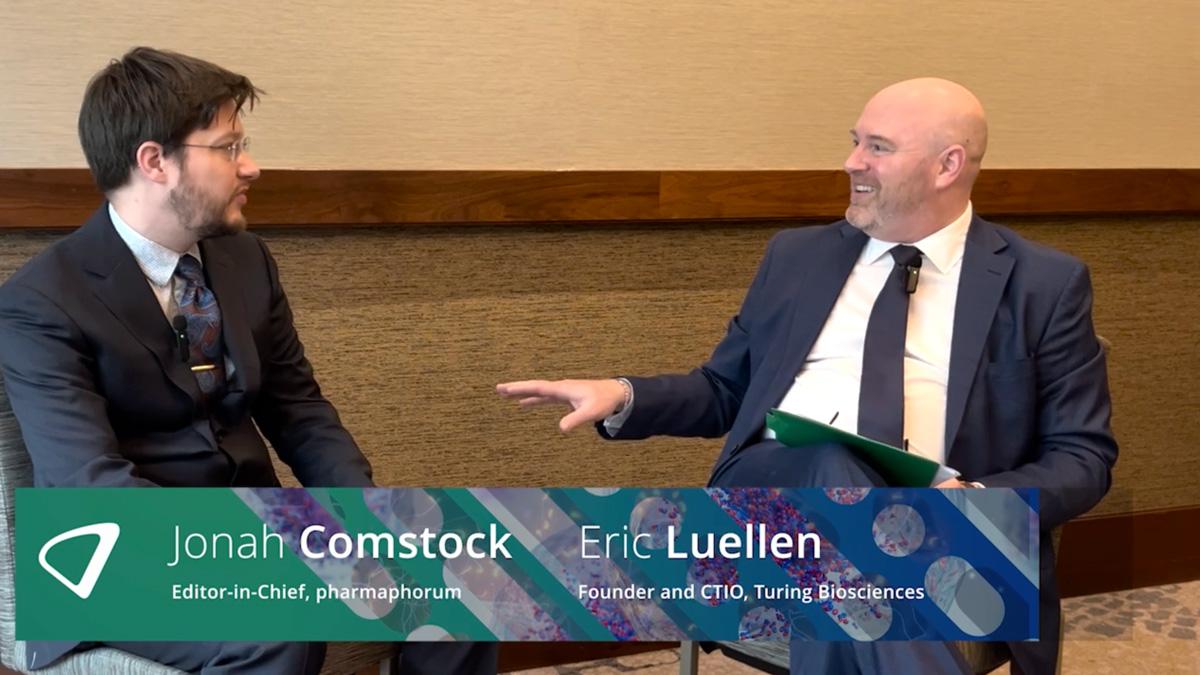Understanding the complex rare disease and specialty pharmaceutical landscape

Donovan Quill, AscellaHealth’s Executive Vice President of Growth and Strategy, describes the unique challenges associated with bringing new specialty and rare disease pharmaceutical products to market and how to increase the chance of success.
Specialty and rare diseases, by their very nature, are lower in prevalence than other common conditions – bringing a unique and intricate set of challenges in terms of gaining market access. Although approximately 10% of the global population may be susceptible to a rare condition, the presence of over 6,000 rare diseases results in a relatively low number of individuals affected by each specific condition.
As a result, low prevalence can impact on the ability to demonstrate the safety, efficacy, and cost-effectiveness of a new therapy.
Demonstrate value
Due to small patient populations, the need for specialty and rare disease therapies is often not recognised, making it increasingly important to gain a thorough understanding of how value is perceived by specific audiences and stakeholders, including public and private payers.
Essential areas to focus on within a market access strategy include the potential cost of the drug, real-world evidence, and health economics.
All key data elements and metrics need to be gathered early-on in the clinical trial process to improve the likelihood of a treatment being proved, recognised, and funded.
Tailor messaging
The priorities of various stakeholders differ. Patients and other stakeholders will need assurance regarding the safety and effectiveness of a drug. Similarly, physicians will require comprehensive information on the method of administration, as well as strategies employed to promote patient compliance and engagement in order to improve health outcomes.
Public or private payers will primarily emphasise affordability and value, in addition to efficacy. Patients may also be interested in the affordability aspect, but their primary focus is likely to be solely on whether a treatment is covered.
When introducing a product to the market, especially a specialty or rare disease therapy, it's crucial to consider not only what matters to each stakeholder, but also how each can contribute positively to the overall health and treatment outcome.
Be compelling
A product needs to demonstrate clinical value with a strong market access strategy and key clinical research end points. Choosing a single-source partner with focused rare disease expertise that provides end-to-end, uniquely tailored programmes, resulting in streamlined product commercialisation, increased cost savings, improved medication access, and enhanced clinical outcomes for specialty and rare disease patients is paramount to product launch success.
A compelling value story centres around factors such as health economic scores and societal factors – determined by the expectation of the effectiveness of the treatment.
While these value indicators might be applied for a wide variety of treatments, the difference with rare disease products is the small patient population. If there’s a population of just under 100, for example, the margin will be much higher than for a product with a potentially higher volume.
Plan early
The time to start considering market access – if not sooner – is by Phase 2, when identifying primary endpoints. Alongside clinical trial protocols, it’s the start of gaining real-world evidence and tracking health economics, which will help demonstrate value.
This data will enable earlier conversations with payers regarding what they’d like to see from the patient cohort and the health economics, leading to what is expected to cover the patient. Working with payers closely in the early stages increases the chance of success.
Partner up
It is important to collaborate with a partner who understands the complexities of rare diseases early on to help guide the market access and product launch strategy. Pharmaceutical manufacturers that partner with a single-source vendor for distribution and fulfilment will obtain the necessary data necessary to help increase patient compliance and adherence to therapy. However, alternatively, if data is coming from many different sources, it can be difficult to track and report on outcomes. Actionable data is imperative to optimise the programme, patient engagement, and outcomes.
Therefore, partnering is key throughout the process for distribution, fulfilment, and patient support/hub services. It’s imperative to identify key touch points with all stakeholders, not only in terms of data gathering, but also key ‘communication and intervention points’.
Maximise numbers
In the clinical trial process, manufacturers need to prove efficacy with a pool of patients. With specialty and rare diseases, the pool is much smaller, as patients need to meet the specific criteria to participate.
The sample of patients could be in single digits each year, so, when dealing with such small numbers, the importance of being able to maximise the trial is paramount. It’s crucial to work with the right partner to assist with patient recruitment and the ability to transition those patients seamlessly then to therapy upon approval of the product.
Address budgets
Bringing therapies to market and gaining approval can become costly, however, we need to ensure payers have access to innovative financial solutions.
Recently, new patient-centric solutions have been developed to help ensure payers and their patients have access to novel and potentially life-saving therapies via our dedicated pull-through and financial programmes to improve access and affordability.
Engage patients
Compliance is over 90% for all of our dedicated, branded programmes – not only ensuring the patient has access to the therapy, but also receives educational, therapy-specific information to aid in compliance. Patient care coordinators should develop relationships with patients and caregivers, delivering interventions to keep them on track and provide personal care plans, custom interventions, and multiple platforms to communicate by, such as email, text, phone, etc.
Identify patterns
With most diseases, there are typical key points where it’s important to reach and obtain data. Identifying these enables identification of effective intervention points.
These touch points are likely to vary – different disease states will require different metrics.
What’s important is continuity to help identify patterns. A consistent supply of a specific data set may be required. Armed with the improved understanding the insight brings, drop-offs can be reduced, improving efficacy and reducing costs.
Collaborate throughout
Collaborating with market access experts improves the chance of a treatment being approved, financially secured, and made available to the patient.
It’s important to collaborate with a single-source partner who can provide end-to-end solutions, including pre-commercialisation, market access, distribution, fulfilment, hub/patient services, outcomes tracking, and comprehensive data analytics to ensure seamless product commercialisation and improved medication affordability.
In the case of specialty and rare disease products, we have helped successfully bring the most impactful treatments to market, applying our in-depth understanding of each therapeutic condition and the specialty pharmaceutical healthcare ecosystem.
Build understanding
Succeeding is about having the right strategy in place with key milestones and demonstrating the value of the therapy to all stakeholders along the way.
The value of the product, cost, coverage, and patient outcomes will be important to all stakeholders. It’s imperative that organisations have a market access strategy that details the payer landscape and the clinical value the therapy represents.
It takes a respected industry partner with decades of specialty and rare disease expertise across various functions to understand the complex rare disease and specialty pharmaceutical landscape, providing a guiding force for clients to navigate this complex ecosystem.
About the author
 Donovan Quill has extensive industry experience and expertise in rare and orphan diseases, collaborating with pharma/biotech organisations to successfully deliver over 40 branded pharmaceutical programmes resulting in streamlined commercialisation of rare disease and specialty therapies, improving medication access and patient outcomes.
Donovan Quill has extensive industry experience and expertise in rare and orphan diseases, collaborating with pharma/biotech organisations to successfully deliver over 40 branded pharmaceutical programmes resulting in streamlined commercialisation of rare disease and specialty therapies, improving medication access and patient outcomes.
About AscellaHealth

AscellaHealth, a global Healthcare & Specialty Pharmacy solutions company, serving patients, life sciences manufacturers, payers, and providers, offers a comprehensive portfolio of uniquely tailored, tech-enabled services supporting complex, chronic conditions or rare diseases that require specialty medications and/or cell and gene therapies.
AscellaHealth is a recipient of numerous industry awards for innovation, and a Best Global Specialty Pharmacy & Healthcare Services Organization 2023 award winner in the annual Healthcare and Pharmaceutical Awards.
AscellaHealth’s best-in-class, patient-centric approach is built upon proprietary technology processes for novel programmes and services to support the launch of specialty medications and proactively address multiple challenges, optimise clinical health outcomes, and improve quality of life for this patient population.
AscellaHealth brings a rare and special perspective. Visit ascellahealth.com or email businessdevelopment@ascellahealth.com to discuss our custom solutions.












